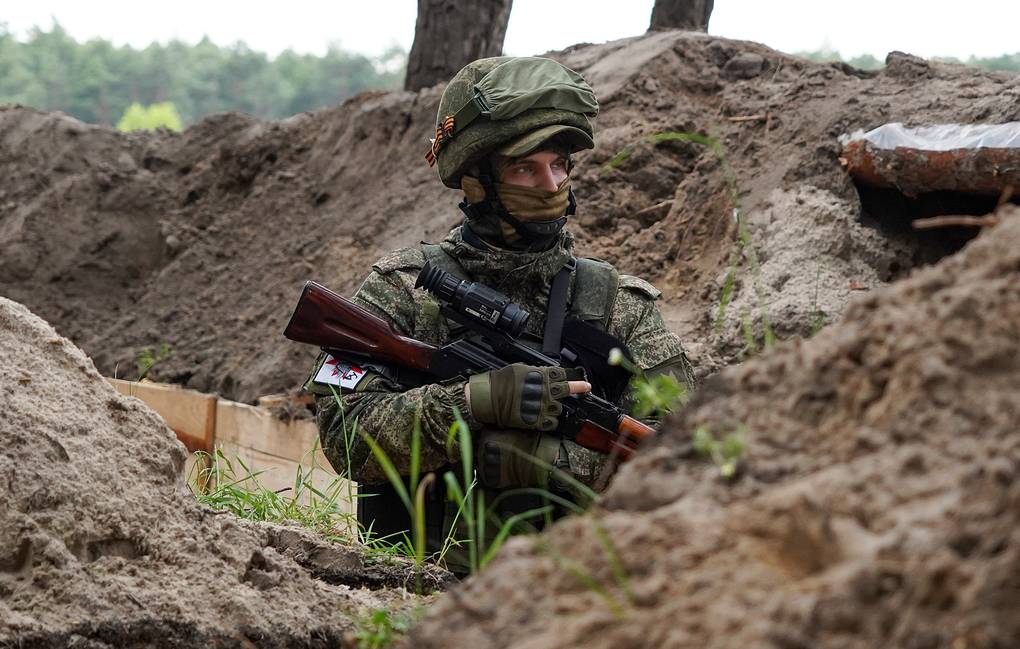
Russia has ramped up its capacity to produce munitions, despite two years of war draining its stockpiles and increasingly severe economic sanctions, to continue its fight in Ukraine, Norway’s foreign minister said Wednesday.
Speaking at the Brookings Institution, Espen Barth Eide added, with the front line quite static “what matters most [for Kyiv] is volume” in manufacturing and receiving munitions like 155-mm artillery shells, and repairing battle-damaged equipment to hold back new Russian assaults.
The Russian invasion “is still the number one security issue for the world.” Eide said what made it unique was the unprovoked attack was a case of “one large country invading another” in Europe. “Whatever the outcome, it will be historic.”
He said Russia’s February 2022 invasion was the driving factor behind Sweden and Finland, two historically neutral countries during the Cold War, seeking NATO membership. For Norway, it meant all nations but Russia on the Baltic Sea are allies; it also gained strong military allies to its east for common Scandinavian defense.
In early 2022, Eide added, many Norwegians wondered “what would actually happen when we’re shipping F-16s” and advanced weapons to Kyiv to blunt Russian movements. Even though the Kremlin escalated its rhetoric of potentially using tactical nuclear weapons, it did not – possibly at the insistence of China – and Norway continued to ship arms and move financial aid to Ukraine, he said.
Eide acknowledged the risks of Norway’s strong backing of Kyiv.
Much of the Russian nuclear stockpile is concentrated on the Kona Peninsula, home to its Northern Fleet and ballistic-missile submarines. In addition, the peninsula is a testing range for Moscow’s missiles.
“We’ve found a modus vivendi” with Russia over territory. He said it took 40 years of negotiations with the Soviet and Russian governments to reach that agreement.
Eide stressed several times, “Ukraine has to decide when it’s time for negotiations.”
Norway recently announced a five-year commitment of military and civilian financial aid to Ukraine, and the European Union followed with its own four-year, $54 billion aid guarantee last week. Norway, in dollar amount, is Ukraine’s fifth-largest financial supporter; Oslo is not a member of the EU.
“You can’t throw money” at the volume problem. With production lines long shut down, Eide added it takes time to rebuild a manufacturing and repair base. Long-term aid is essential because “you can’t give big for one year” and expect substantial results.
But future U.S. support for Ukraine is a concern to all European nations backing Kyiv, he said. Eide termed it “a question mark in Washington, a big one.”
As Eide was speaking, the Senate voted down a border security bill that included more than $60 billion for Ukraine and $14 billion for Israel. Whether the aid packages would pass in the Senate if separated from the overhaul of border security laws and policies is unclear.
He acknowledged future Western support for Ukraine was even murkier with the United States holding a presidential election in November, and the United Kingdom and the EU holding parliamentary elections this year as well.
As president, Donald Trump questioned the U.S. need for NATO and the value of sending funds to Ukraine after Moscow’s seizure of Crimea and its continued armed support for separatists in eastern provinces bordering Russia.
One reason Norway was able to lend so much financial support to Ukraine was when countries such as Germany shifted from buying energy – primarily natural gas – from Russia, and instead turned to Oslo. Eide added Slovakia and Hungary, both EU members, still rely on the Kremlin for energy supplies. Both were reluctant supporters of the EU’s new Ukrainian aid package.
On the Israel-Hamas war, Eide said Norway wants to strengthen the Palestinian National Authority in its struggle with Hamas as well. He called the authority “people who want peace with Israel” and that would allow for a two-state solution to the central issue that has dogged Arab-Israeli relations since 1948. “We’re doing everything we can, [but] that’s not enough.”
Eide said in the “Global South” the West is perceived6ytg as “more concerned about Ukraine than Palestine.” He added the Palestinians’ “problems did not become less relevant for them” when Russia attacked Ukraine without warning.





